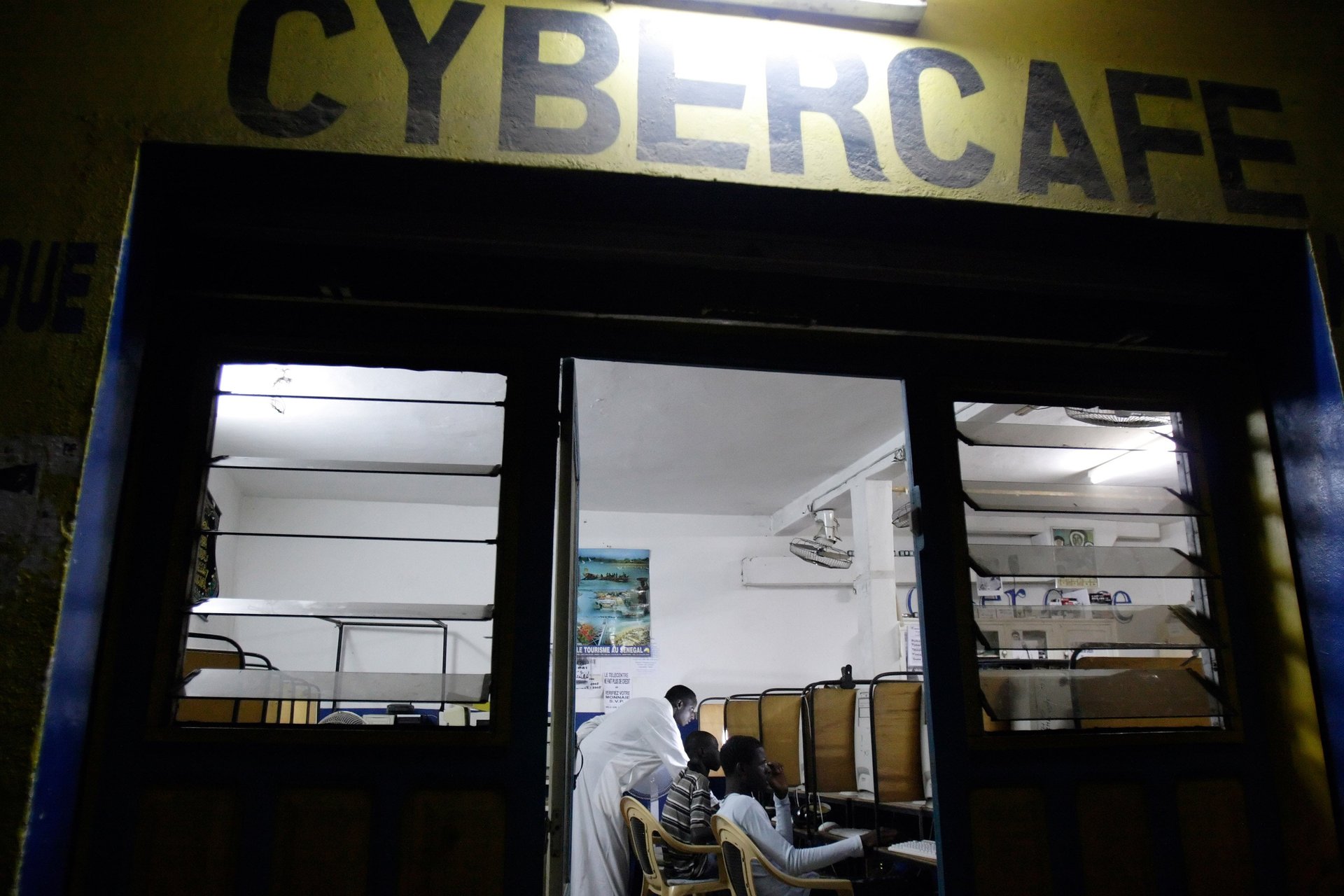Africa’s growing internet addiction suggests a new way to understand the problem
At the Bachir Mentouri clinic in Constantine, Algeria, internet addicts suffer from back pain and headaches. If prevented from going online, they become fidgety, anxious, and sometimes aggressive, and they’re treated with counseling, physical exercises, meditation, and music therapy.


At the Bachir Mentouri clinic in Constantine, Algeria, internet addicts suffer from back pain and headaches. If prevented from going online, they become fidgety, anxious, and sometimes aggressive, and they’re treated with counseling, physical exercises, meditation, and music therapy.
“Their addiction is real and sometimes troubling,” said Sihem Hemadna, a psychologist at the clinic, told Al Jazeera in a recent profile of the center, which treats a range of addictions.
The Bachir Mentouri internet rehab program, funded by the Algerian government, is the first in Algeria and one of the first on the African continent. Internet addiction (IA), while not included in the Diagnostic and Statistical Manual of Mental Disorders, a standard classification of mental disorders, has emerged as an area of study around the world.
Much of the focus has been in countries where internet penetration and usage is high, such as China and South Korea, home to various internet rehab camps. But more attention is being paid to Africa, where internet usage and penetration rates are among the world’s fastest growing.
Definitions of IA vary from the compulsive overuse of the internet to a combination of emotional conflict, time management problems, and mood modifications linked to time spent online. Others describe it as an impulse control disorder. (One study found that the prevalence of IA around the world was three times higher than that of pathological gambling, another impulse control disorder.)
David Briskham, clinical and development director at Twin Rivers, an “addiction recovery center” in Plettenberg Bay, South Africa says that inquiries for their IA services have increased in the three years since they began offering treatment. He believes addiction across the continent is likely to grow, chalking this up to “boredom, control,” he says. “It’s a technological age where the general public has been brainwashed into believing that the internet… is essential.”
Data is scarce on IA in Africa, but it’s here that prevailing theories about what causes IA can be put to the test. One, that IA occurs more in places with higher internet penetration rates and GDP per capita, is based on the theory of “availability as a law of addition.” Access to the internet and other ICT services should mean a higher rate of internet addiction. But in Algeria, internet penetration is only about 33%, compared to 80% in South Korea, believed to have the highest rate of internet addiction in the world.
Specialists at the Bachir Mentouri clinic detect other factors. Joblessness is a problem— almost a quarter of people between the 18 and 24 are unemployed—and is especially bad outside of the capital Algiers, where many young Algerians spend all night at cyber cafes.
“The internet offers them what they cannot find anywhere else in Algeria: A euphoric escape from reality. But they end up sucked into a digital world,” Djamel Berkat, one of the clinic’s addiction experts, told Al Jazeera.
In fact, quality of life may have more to do with internet addiction than availability. According to a 2014 study from researchers at the University of Hong Kong, countries with a higher prevalence of IA tended to score lower on general life satisfaction metrics, showing higher pollution levels, longer traffic commute times, and lower national income. (The study, which analyzed internet addiction tests conducted in 31 countries, did not include data on IA in Africa.)
Internet addiction in African countries may also manifest itself differently. A 2013 study (pdf) of university students in Uganda and Namibia found that while students spent less time online than their Western peers, they showed more instances of emotional dependency and mood modification—behavior like choosing to be online over going out.
“This suggests that internet addiction of African university students is best characterized by their strong emotional dependence on the internet,” the lead authors, Ravi Nath from Creighton University, and Leida Chen, from Peking University, concluded. ”Clinical diagnosis of internet addiction among African internet users should not just focus on the obvious measures such as amount of time spent online,” they added.